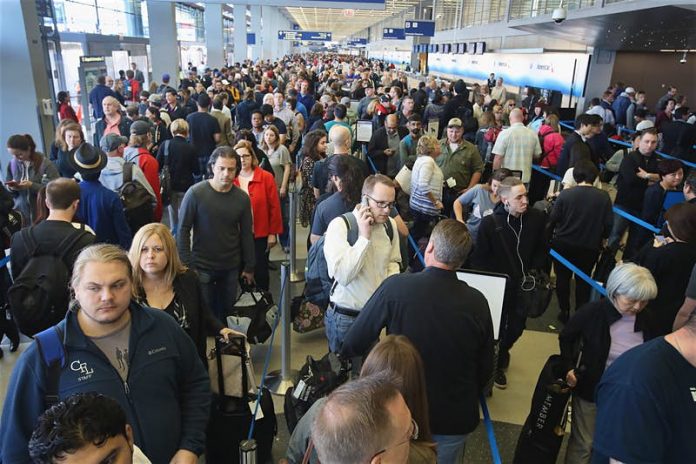There’s nothing like that spike of anxiety when you’re stuck on the train or in traffic, watching the minutes tick by and wondering if you’re going to get to the airport—and through the security checkpoint—in time for your flight.
If you’ve ever done a frantic search for security-line wait times to see if you’ll make it, you’re not alone—and if you’ve been frustrated by the results, again, you’re not alone. For travel in the US, apps and websites abound with crowd-sourced information, historical averages, or good old-fashioned guesstimates, but none provide the real-time data that would lend a measure of reassurance to a panicked would-be passenger.
That’s because, according to a recent report in the Los Angeles Times, apps can’t collect that data without permission from the airports. But the Transportation Security Administration has another tool at its disposal, and if it’s implemented nationwide, it could be a game-changer.
Launched in February 2018 and used in busy airports from New York to New Zealand, Veovo is a predictive platform that provides details on checkpoint queues via a service called Passenger Predictability Solutions (or BlipTrack, as it was previously known), which mines data from sources like Wi-Fi, Bluetooth sensors, and 3D cameras to determine accurate wait times. “Airports need to innovate aggressively to cope with increased passenger numbers,” Veovo general manager Chris Warrington said in a press release announcing the launch. “Big data innovations…can help them optimise their entire operation.”
Unfortunately, said data is only accessible to passengers at the airports themselves at this point—which doesn’t do much to help with advanced planning. But app creators are eager to get their hands on the real-time numbers and pass it on to the public. “It’ll be in everybody’s best interest if TSA at airports across the country use this technology to collect the data and share it with us and other companies so we can better serve our users,” Bayram Annakov, CEO of the travel-oriented App in the Air, told the L.A. Times. Time-crunched travelers will be keeping their fingers crossed.

